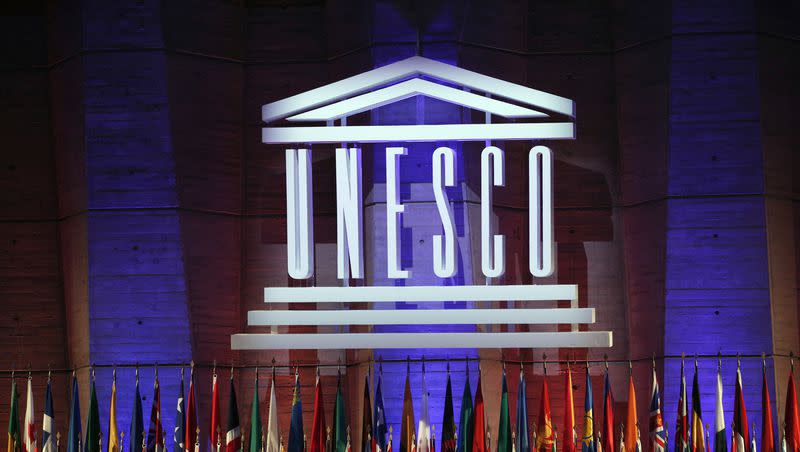The U.S. wants back in UNESCO. What changed?

The United States plans to rejoin UNESCO — the United Nations Educational, Scientific and Cultural Organization — five years after it withdrew from the organization under former President Donald Trump.
UNESCO Director-General Audrey Azoulay announced Monday that the U.S. had officially informed her that the country would rejoin the organization in July.
“This is a strong act of confidence, in UNESCO and in multilateralism. Not only in the centrality of the Organization’s mandate — culture, education, science, information — but also in the way this mandate is being implemented today,” Azoulay stated.
The United States of America announces its intention to rejoin UNESCO in July.
"This is a strong act of confidence in the centrality of #UNESCO's mandate but also in the way this mandate is being implemented today." - @AAzoulay https://t.co/OeS1Q87H2z pic.twitter.com/QidZPb8b71— UNESCO 🏛️ #Education #Sciences #Culture 🇺🇳 (@UNESCO) June 12, 2023
What is UNESCO?
UNESCO describes itself as an organization that “contributes to peace and security by promoting international cooperation in education, sciences, culture, communication and information.” It is known for its World Heritage program, where it designates cultural sites around the world as World Heritage Sites.
The organization also has educational programs and works on a wide range of issues, including clean water, literacy, sex education and equality for women, The New York Times reported.
“It also helps to set standards on a range of issues, including ocean protection and the ethics of artificial intelligence,” per the Times.
Why did the U.S. leave UNESCO?
The U.S. cut off financing to UNESCO in 2011 after it accepted Palestine as a member state in 2011.
In 2017, the Trump administration withdrew completely from UNESCO, “citing long-running anti-Israel bias and management problems,” according to The Associated Press.
Why did the U.S. decide to rejoin UNESCO?
In a letter sent to the director-general, the U.S. Department of State “welcomed the way in which UNESCO had addressed in recent years emerging challenges, modernized its management, and reduced political tensions,” Azoulay stated.
Additionally, the U.S. sees joining UNESCO as a way to counter China’s growing influence in the organization.
Undersecretary of State for Management John Bass stated the U.S. leaving UNESCO had strengthened China and “undercuts our ability to be as effective in promoting our vision of a free world,” AP reported.
“So if we’re really serious about the digital-age competition with China … we can’t afford to be absent any longer,” Bass said.
What happens next?
UNESCO’s member states will vote whether or not to readmit the United States, but the vote is more of a “formality,” according to AP, as approval is likely, since the U.S. was “once the agency’s single biggest funder.”
If the U.S. receives a vote of approval from the organization, it will pay over $600 million in back dues.

